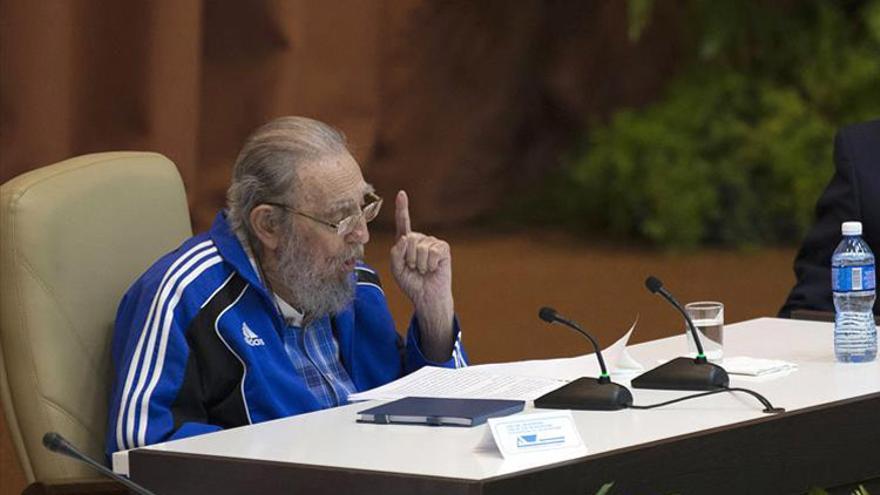
![]() 14ymedio, Ernesto Santana, Havana, 31 March 2019 — In 1999, during a visit to Cuba by then Illinois Governor George Ryan, Fidel Castro gave a press conference in the Great Hall of the University of Havana before dozens of journalists. I couldn’t believe I was there, thanks to my role as a guide for the Chicago Telemundo team and as an assistant to the cameraman. Among the journalists covering the governor’s visit was Alejandro Escalona, winner of the Studs Terkel Prize in 2014.
14ymedio, Ernesto Santana, Havana, 31 March 2019 — In 1999, during a visit to Cuba by then Illinois Governor George Ryan, Fidel Castro gave a press conference in the Great Hall of the University of Havana before dozens of journalists. I couldn’t believe I was there, thanks to my role as a guide for the Chicago Telemundo team and as an assistant to the cameraman. Among the journalists covering the governor’s visit was Alejandro Escalona, winner of the Studs Terkel Prize in 2014.
Unusually, at the end of the press conference, Castro allowed himself to be surrounded by the journalists, who interrogated him about a thousand things, but the limelight fell on the editor of Éxito who asked him why he did not hold a plebiscite as Pinochet had done, to which El Comandante replied, stung: “You are comparing things that have nothing in common.”
Jorge Ramos — the Univision journalist who recently drove Nicolás Maduro crazy and who shares a courageous interviewer lineage with Escalona — apparently was there and, shortly afterwards, recounted what had happened in an article. Perhaps memory deceives me and today my description does not agree with his on some minor points, about that question like a gunshot: “If the people have the power, why don’t you leave the presidency?”
Then, like a bomb, in front of the cameras of half the world was heard, “Because I don’t feel like it!” Shortly after, el Comandante left, but it wasn’t even two minutes later when, in plain sight of all of us, a guard hurried up asking for “the Mexican” and left with Escalona, followed, of course, by all the journalists.
Fidel Castro had understood his enormous error. He had revealed to the international audience that, in effect, he was a despot and ruled “as long as I feel like it,” but the damage had to be repaired. Beside the open door of one of his black Mercedes Benzes, in the middle of the swarm of guards and reporters, with all the cameras and microphones pointed at him, he deployed his acting skills, giving the usual explanations and showing his interrogator a very friendly face.
He didn’t have to say any more. Escalona had achieved what every interviewer pursues and very rarely achieves: revealing the essence of his interviewee: making the truth visible. Ramos himself relates in his article that in 1991, in Mexico, in a brief encounter with the dictator, he had also asked about a plebiscite, but he only managed to get a shove from a bodyguard who knocked him to the grass.
Alejandro Escalona has met many important figures and always, as those who know him well, as a practitioner of the best American journalism of transparency and a follower of the master Studs Terkel, he has objectively pursued information, but surely at that moment in 1999 he was one of those who felt he had most fully realized his role as a journalist and most identified with his professional mission.
___________________
The 14ymedio team is committed to serious journalism that reflects the reality of deep Cuba. Thank you for joining us on this long road. We invite you to continue supporting us, but this time by becoming a member of 14ymedio. Together we can continue to transform journalism in Cuba.
